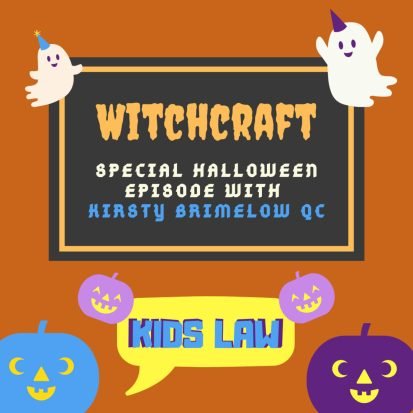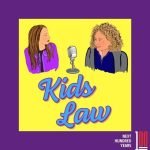
Do witches really exist and how do lawyers get involved?
Leave a reviewA Hallowe'en Special!In this episode, Alma-Constance and Lucinda are talking to Kirsty Brimelow QC, a barrister and expert in international human rights, public and criminal law. We talk about
© Alma-Constance, Denis-Smith and Lucinda Acland | 00:23:06
|Season: 2 |Episode: 3 |
Full episode description
 Episode One: Welcome to Kids Law!
Episode One: Welcome to Kids Law!
This is an Episodic show. You can listen to it in any order, but episode one is always a great place to start.Full Episode description
A Hallowe'en Special!
In this episode, Alma-Constance and Lucinda are talking to Kirsty Brimelow QC, a barrister and expert in international human rights, public and criminal law.
We talk about
- the history of laws about witchcraft and why this is still relevant today in the UK
- the balance of the freedom for people's right to believe what they wish and the need to protect people from harm
- the role of human rights law and international organisations like the United Nations
Kirsty Brimelow QC chaired the first UN Workshop on Witchcraft and Human Rights in Geneva in 2017 and worked to introduce a Resolution into the United Nations on the elimination of harmful practices related to accusations of witchcraft and ritual attacks. This resolution was passed by the United Nations Human Rights Council on 12 July 2021. This means that the UN has condemned these practices.
Alma-Constance and Lucinda would love to hear from you. What do you think of the episodes so far?
If you have any questions, ideas about a topic or someone you'd like us to interview, please contact us through the website, www.kidslaw.info or through social media on Twitter, Facebook and Instagram @KidsLawInfo
You can also email us: kidslaw@spark21.org
Please subscribe, rate, and share with your friends!
© Alma-Constance, Denis-Smith and Lucinda Aclandbop| Status: Active, 62 episodes | Kind: Episodic | Episode URL
The content, Artwork and advertising within this podcast is not owned or affiliated with Sound Carrot and remain the property of their respective owners.









